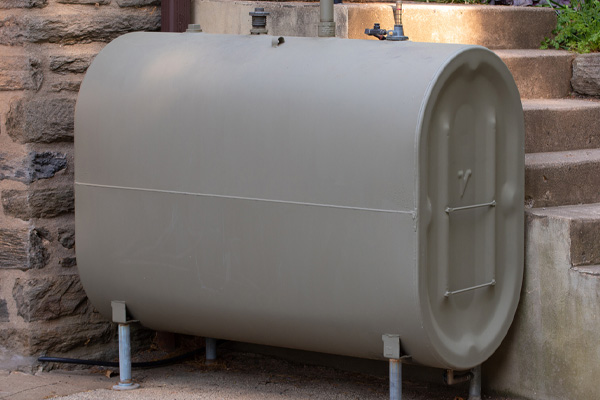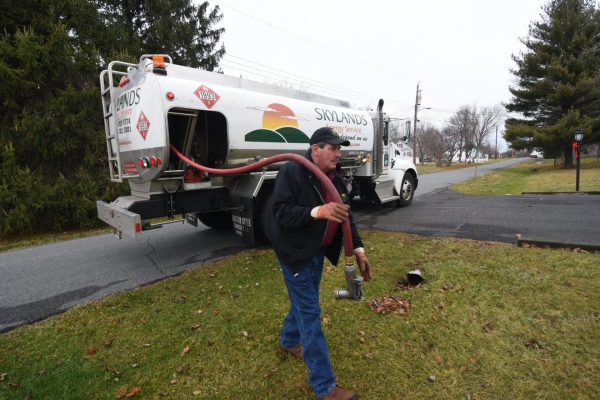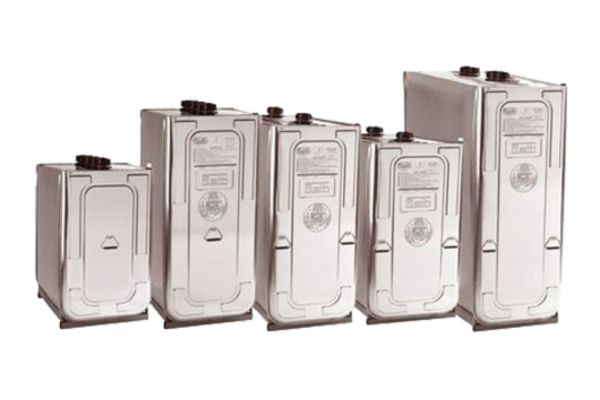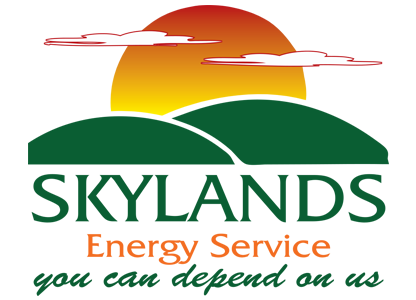
Heating oil stored in residential tanks ensures your home stays warm and provides hot water when you need it. Depending on your tank’s size and your household’s consumption, the fuel can last for months, delivering consistent comfort during colder weather. Properly caring for your heating oil tank is essential for avoiding common issues, such as the buildup of heating oil tank sludge.
This thick, sticky substance accumulates over time and can cause significant problems if left unaddressed. While heating oil tank sludge cannot be entirely prevented, you can take steps to slow its formation and reduce its impact. Doing so will help extend the lifespan of your oil tank and ensure its efficiency.
This article, provided by Skylands Energy Service, explores the causes of heating oil tank sludge and practical ways to prevent it.
What Causes Sludge to Form in Heating Oil Tanks?
Table of Contents
- 1 What Causes Sludge to Form in Heating Oil Tanks?
- 2 Understanding Heating Oil Tank Sludge
- 3 What Leads to Heating Oil Tank Sludge?
- 4 Challenges Posed by Sludge in Fuel Oil Tanks
- 5 Strategies to Prevent Sludge in Home Heating Oil Tanks
- 6 FAQs About Heating Oil Tank Sludge
- 6.1 What Indicators Suggest the Presence of Sludge in Heating Oil Tanks?
- 6.2 Can Heating Oil Tank Sludge Shorten My Heating System’s Lifespan?
- 6.3 How Frequently Should I Check My Heating Oil Tank for Sludge?
- 6.4 What Steps Should I Take If I Find Sludge in My Heating Oil Tank?
- 6.5 Can Certain Heating Oils Minimize Sludge Formation?
- 7 Conclusion
- 8 Contact Skylands Energy Service for Trusted Heating Oil Delivery Services

Sludge accumulation in heating oil tanks occurs gradually under specific conditions. Homeowners can take proactive measures to reduce its formation by understanding the contributing factors. Below, we’ll delve into the primary components, common causes, potential issues, and strategies for prevention.
Ensure Reliable Heating: Trust Skylands Energy Service for prompt and dependable heating oil delivery. Schedule your next delivery today by giving us a call now!
Understanding Heating Oil Tank Sludge
Heating oil tanks contain more than just fuel. Over time, particles of dirt, debris, rust, and moisture accumulate inside the tank. These elements, combined with microorganisms that thrive in the dark, damp environment, settle at the bottom, forming a thick sludge.
The risk of sludge formation increases in tanks that are nearly empty for long periods, particularly when neglected after winter. Many homeowners forget about their heating oil tanks during the warmer months, only revisiting them when temperatures drop. This buildup often becomes apparent when fuel delivery professionals encounter sludge while refilling the tank.
What Leads to Heating Oil Tank Sludge?

Heating oil tanks rely on a vent pipe system to maintain pressure balance. When oil is delivered, air escapes the tank through the vent pipe, often producing a whistling sound. Conversely, when fuel is consumed, air enters the tank to replace it. While this system regulates pressure, it can also allow cold, moist air into the tank.
This moisture condenses on the interior walls, promoting rust formation. Over time, rust flakes settle at the bottom of the tank. Additionally, leftover fuel reacts with light, heat, air, rust, and water inside the tank. These reactions create conditions where bacteria can thrive, feeding on these elements and gradually forming sludge.
Need Reliable Oil Tank Solutions? Skylands Energy Service offers comprehensive services, from installations to routine maintenance. Contact us today!
Challenges Posed by Sludge in Fuel Oil Tanks
Fuel tank sludge can lead to several operational challenges in your heating system. This section details the specific problems caused by sludge accumulation.
Lower Energy Efficiency
Sludge accumulation in oil tanks can significantly hinder the performance of your heating system. This thick, adhesive substance can obstruct supply lines and clog oil filters, impeding the flow of oil necessary for efficient operation.
When sludge restricts or blocks these critical pathways, the system’s energy efficiency diminishes, forcing it to work harder and consume more fuel. This inefficiency leads to higher heating costs.
Heating System Failures Due to Sludge Build-Up

While sludge buildup in a heating oil tank might not seem urgent, it progressively strains your HVAC system, potentially leading to severe breakdowns. Sludge can infiltrate critical components, causing your furnace or boiler to fail, often necessitating costly repairs or even complete replacement.
Additionally, tanks compromised by rust and sediment may leak, posing further risks and expenses. Proactively replacing old tanks compromised by rust can prevent these issues, ensuring your system remains robust and reliable.
Stay Cozy with Skylands Energy Service: Depend on us for efficient and timely heating oil deliveries. Contact us today to schedule your next fuel delivery and ensure uninterrupted warmth and comfort!
Strategies to Prevent Sludge in Home Heating Oil Tanks
Preventative measures are key to avoiding the complications associated with sludge in your heating oil tank. Implementing the following strategies will help maintain a clean and efficient tank, eliminating risks and enhancing the longevity of your heating system. Here are practical steps recommended to keep your tank sludge-free.
Schedule Consistent Heating Oil Deliveries

Sludge formation is more probable when your heating oil tank’s fuel levels are low, as increased air intake leads to condensation inside the tank. Maintain a consistent schedule for oil deliveries to mitigate this risk, ensuring your tank never nears emptiness.
Delaying refills until levels are critically low heightens the likelihood of fuel line blockages, which can potentially disrupt your heating supply unexpectedly. Stay proactive by arranging regular deliveries to keep your home warm and your system running smoothly.
Get Affordable Heating Oil Delivered On Time: Rely on Skylands Energy Service for competitive pricing and exceptional service. Contact us today to schedule your delivery!
Enhance Fuel Quality with Heating Oil Additives
Incorporating chemical additives into your heating oil tank prior to delivery can significantly hinder sludge formation. These additives work by breaking down existing sludge deposits and facilitating easier cleaning. When selecting an additive, ensure it contains a dispersant compound, which helps in breaking down and dispersing sludge particles.
Additionally, look for features like algae prevention, water removal, and wax inhibition, which contribute to overall fuel quality and system efficiency. It’s advisable to treat your tank once each heating season to maintain optimal performance. However, since many heating oil providers already include such additives in their fuel, check with your supplier to avoid redundancy.
Provide Essential Care for Your Heating Oil Tank
Dedicating attention to your heating oil tank through routine care can greatly enhance its performance and longevity. Replace the oil filter routinely and schedule professional inspections. Expert technicians are skilled in identifying and resolving issues like clogs and sludge deposits, ensuring these problems are addressed promptly before they escalate.
Stay Comfortable with Skylands Energy Service: Opt for our dependable heating oil services to ensure uninterrupted warmth. Contact us today to schedule your delivery!
Opt for High-Quality Heating Oil
Heating oil quality varies significantly, and not all types are created equal. Opting for premium heating oil, which contains fewer contaminants that can form sludge, is crucial for maintaining your system’s efficiency. Choose a reputable supplier known for delivering clean, high-quality fuel.
Consult with neighbors to identify the best company in your area, which supplies top-tier fuel and offers support in managing heating oil. Their expert guidance can help you implement effective preventive measures at home. For those in central New Jersey, contact Skyland Energy Service today!
Keep Your Oil Tank Full Year-Round

Many homeowners typically refill their heating oil tanks only during the colder months, allowing the tank to remain nearly empty during the warmer seasons. This practice leaves the tank mostly filled with humid air, creating ideal conditions for rust and sludge formation.
To prevent these issues, consider keeping your tank full throughout the year. A full tank minimizes the presence of air and water vapor, reducing the risk of rust and inhibiting bacterial growth.
Fuel Your Comfort: Rely on Skylands Energy Service for timely heating oil delivery. Secure your next delivery by calling us today!
FAQs About Heating Oil Tank Sludge

What Indicators Suggest the Presence of Sludge in Heating Oil Tanks?
Signs of sludge buildup are often seen as erratic furnace behavior, such as starting difficulties, uneven heating across rooms, or frequent system stoppages. Observations might also include obstructed filters, reduced speed of fuel delivery, or a decrease in energy efficiency, leading your heating system to exert extra effort to keep up with the required temperatures. Early detection and resolution of these signs are crucial to prevent further complications and maintain efficient operation.
Can Heating Oil Tank Sludge Shorten My Heating System’s Lifespan?
Yes, sludge buildup in your heating oil tank can significantly reduce the operational life of your heating system. It clogs fuel lines, filters, and nozzles, causing your furnace or boiler to overwork. This extra strain increases the need for repairs, decreases efficiency, and may cause early system failures. Regular maintenance and timely sludge removal are crucial for extending your system’s operational life.
How Frequently Should I Check My Heating Oil Tank for Sludge?
You should conduct an inspection of your heating oil tank for sludge annually, preferably before the onset of the heating season. This yearly check-up prepares your system for high-demand periods and helps identify and mitigate sludge-related issues early, ensuring optimal performance. Tanks that are older or have previously experienced sludge problems might require more frequent inspections.
Keep Your Home Comfortable with Skylands Energy Service: Count on our dependable heating oil delivery and comprehensive oil tank solutions to keep your system running smoothly and your family warm. Contact us today!
What Steps Should I Take If I Find Sludge in My Heating Oil Tank?
If sludge is discovered during an inspection, arrange for professional cleaning immediately. Sludge buildup can block fuel flow, harm your heating system, and drive up energy costs if ignored. A professional cleaning ensures the safe removal of debris, restores efficient tank operation, and minimizes the chances of expensive repairs or replacements.
Can Certain Heating Oils Minimize Sludge Formation?
Yes, using high-quality, low-sulfur heating oil can greatly reduce sludge formation. Many suppliers also provide heating oil enhanced with additives to prevent sludge buildup, reduce corrosion, and boost system efficiency. Choosing premium or treated heating oil helps keep your tank cleaner and extends the lifespan of your heating system.
Conclusion
Heating oil tanks may appear static, but their interiors are constantly changing. Air and fuel move in and out, while water vapor condenses on the walls, leading to rust and fostering bacterial growth.
To avoid sludge buildup, keep your tank clean and full, use high-quality heating oil from trusted suppliers, and rely on professionals for more advanced maintenance needs.
Complete Heating Oil Services with Skylands Energy Service: Depend on us for reliable heating oil delivery and professional oil tank services. We’ll keep your home warm and efficient year-round. Contact us today!
Contact Skylands Energy Service for Trusted Heating Oil Delivery Services
Skylands Energy Service is committed to keeping homes and businesses in Central New Jersey warm and comfortable with our dependable heating oil delivery services. We focus on providing high-quality heating oil quickly and efficiently so you can enjoy uninterrupted warmth without stress. With competitive pricing and transparent services, we always put your comfort first.
Skylands Energy Service offers flexible heating oil delivery plans and financing options, allowing customers to tailor fuel delivery to their specific needs. Each customer receives personalized care to ensure their home stays warm and cozy throughout winter.
In addition to heating oil delivery, we provide a complete range of HVAC services, making Skylands Energy Service your go-to provider for total home comfort. We offer comprehensive heating and cooling services, including system installations, routine care, and prompt emergency repairs.
Choosing Skylands Energy Service means partnering with a reliable provider. Known for consistent, customer-focused service, we’ve earned a reputation as a trusted name in the community. Contact us today to get started!
Contact us now at (908) 707-1776 to find out more! To view our service area, click here.

Related Articles:

